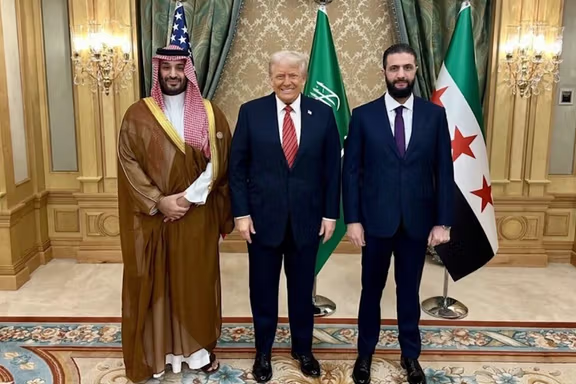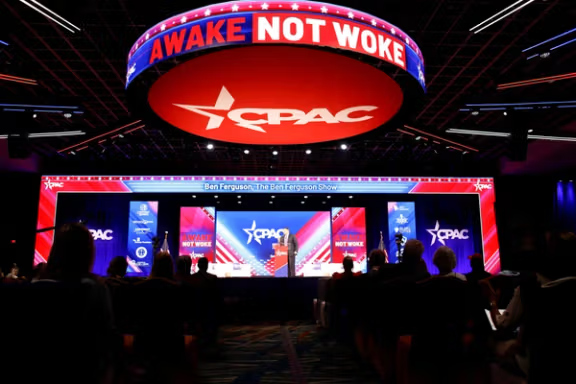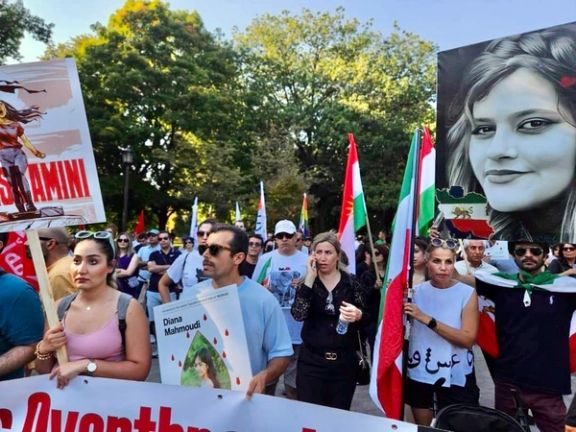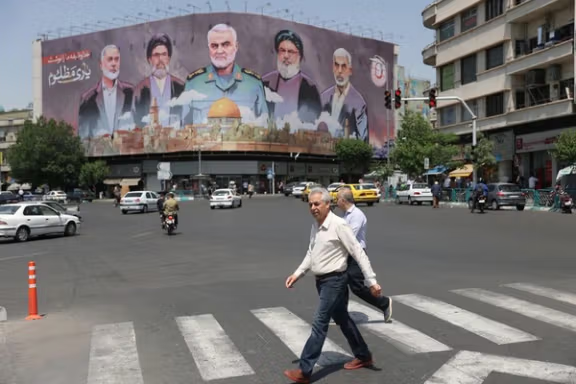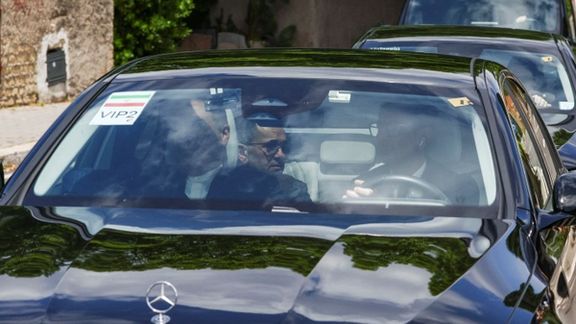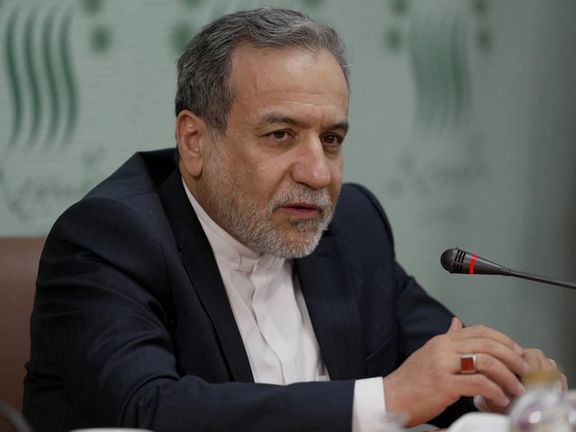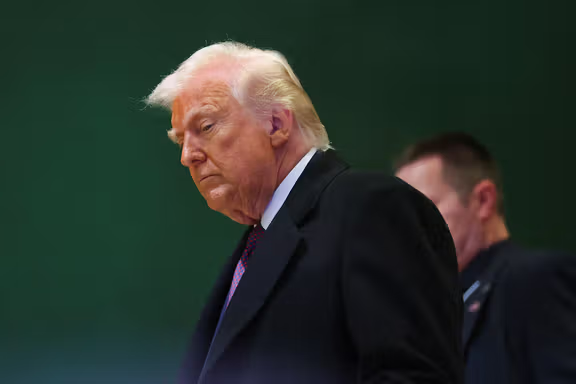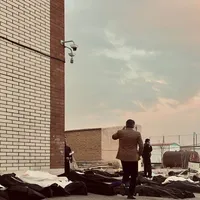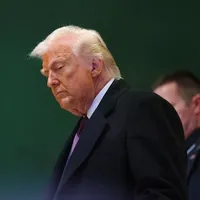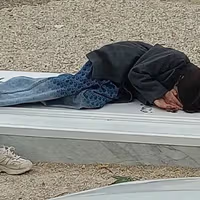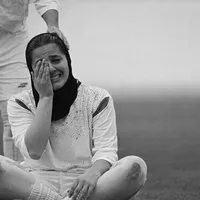As Arab states astride the Persian Gulf prosper, Iran remains mired in grievance, repression and decline, according to former Palestinian peace negotiator Ghaith al-Omari on Eye for Iran.
“The Persian Gulf is non-ideological. Their leaders say, ‘My job is how to make life better for my people.’ This is completely incompatible with the ideological mindset—including in Iran,” al-Omari said.
As Saudi Arabia and the UAE surge ahead—reimagining their economies and societies—Iran clings to a narrative rooted in the past.
“What is the narrative coming from the Iranian regime? It’s a narrative of grievance... rooted in the past, in both past grievances and past glory... not a view of prosperity.”
Al-Omari said the Middle East is undergoing a seismic shift, with Persian Gulf countries becoming the “center of gravity” in the region—and Trump recognizing and seizing that opportunity.
Decades of neglect
During his speech at the US-Saudi Investment Forum in Riyadh on May 13, 2025, President Trump drew a sharp contrast between the trajectories of Saudi Arabia and Iran. The president anccused Iran’s leadership for mismanaging the country and funding terrorism, while praising the transformation of its neighbors.
“Iran's decades of neglect and mismanagement have left the country plagued by rolling blackouts lasting for hours a day. All the time, you hear about it. While your skill has turned dry deserts into fertile farmland, Iran's leaders have managed to turn green farmland into dry deserts, as their corrupt water mafia—it's called the water mafia—causes droughts and empty riverbeds,” said Trump.
His remarks resonated with many Iranians, long critical of Tehran's failures. The speech reinforced a new US posture in the region—one that rewards progress and punishes destabilization.
Trump’s Persian Gulf tour also produced sweeping economic and defense agreements.
A $142 billion arms deal was signed, the largest defense cooperation agreement in US-Saudi history. It includes cutting-edge warfighting technology and signals a shift in US strategic posture.
Saudi Arabia committed to investing $600 billion in the United States across energy, defense, mining, and other sectors.
Taken together, these moves represent a strategic pivot: away from traditional diplomacy, and toward a model focused on mutual economic and security interests.
And one in which Iran—after its unprecedented direct missile attack on Israel last year—is increasingly isolated and weakened.
Even Syria adapts—leaving Tehran more isolated
Even Syria—long seen as a spoiler in regional affairs—is signaling a shift.
"Syria has been a spoiler in the region since the 1970s," said al-Omari. "Now Syria is not a spoiler."
Trump's outreach to Damascus, despite its authoritarian legacy, underscores the extent to which even old adversaries are repositioning themselves in a changing Middle East. As others pivot toward stability and integration, Tehran's confrontational stance risks leaving it behind.
Qatar
Qatar was also a focal point of Trump’s tour.
Qatar Airways agreed to purchase up to 210 planes from Boeing. Trump described it as “the largest order of jets in the history of Boeing.”
He also accepted a Boeing 747-8 aircraft from the Qatari government, valued at roughly $400 million. Trump said it would be “stupid” to turn it down, framing it as a donation to the US Department of Defense, not for personal use. The move sparked backlash, even among Trump’s own supporters.
Al-Omari criticized Qatar’s influence strategy, noting its financial clout and controversial alliances.
“Qatar is a very problematic actor. Qatar has been the supporter of Hamas, the supporter of Muslim Brotherhood, the supporter of disruption throughout the region.”
He added that while Persian Gulf countries all have relations with Iran, “Qatar has partnership with Iran in many ways. That’s different.”
Trump made headlines when, during a state dinner in Doha, he said: “Iran should say a big thank you to the Emir, because he's fighting for them.”
He also reportedly asked the Qatari government to push Iran toward a nuclear deal.
“The Qataris like these problematic relations to be behind the scenes, to be hush-hush," said al-Omari on Eye for Iran, "Trump being Trump, he doesn't like to play this subtle behind the scenes game. He says it as it is."
A new era of American diplomacy
Al-Omari said Trump’s approach marks a sharp departure from previous presidents like Barack Obama.
“Trump sees the region through a transactional lens. Obama focused on moral lectures. Trump prefers investment and deals—but keeps military options on the table, especially when it comes to Iran.”
The administration wants Iran to integrate into this future-oriented regional order—but warns of consequences if it doesn’t.
“There’s an opportunity for Iran if it wants to take it,” said al-Omari. “The region is changing—but not at any price.”
You can watch the full episode of Eye for Iran featuring Ghaith al-Omari on YouTube or listen on any major podcast platform like Spotify, Apple, Amazon Music or Castbox.
